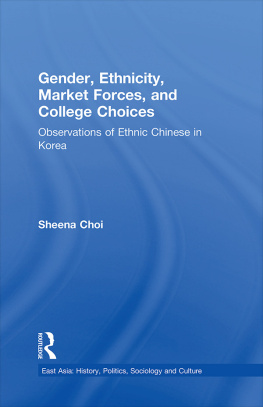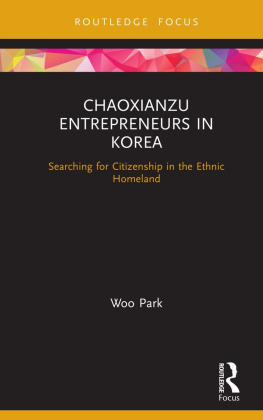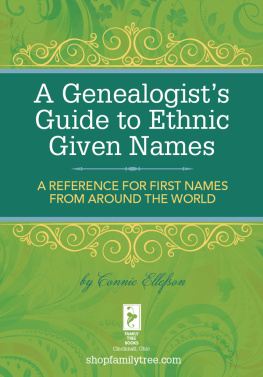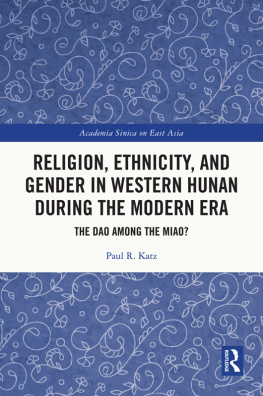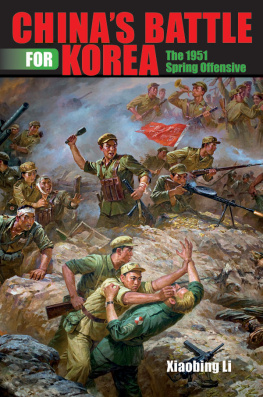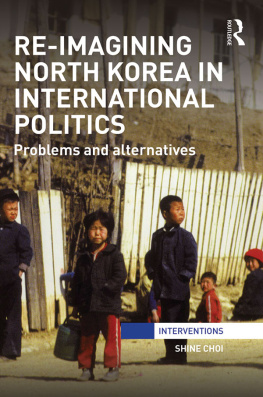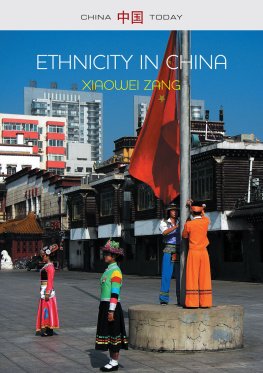Sheena Choi - Gender, Ethnicity and Market Forces: Observations of Ethnic Chinese in Korea
Here you can read online Sheena Choi - Gender, Ethnicity and Market Forces: Observations of Ethnic Chinese in Korea full text of the book (entire story) in english for free. Download pdf and epub, get meaning, cover and reviews about this ebook. City: London, year: 2001, publisher: Routledge, genre: Science. Description of the work, (preface) as well as reviews are available. Best literature library LitArk.com created for fans of good reading and offers a wide selection of genres:
Romance novel
Science fiction
Adventure
Detective
Science
History
Home and family
Prose
Art
Politics
Computer
Non-fiction
Religion
Business
Children
Humor
Choose a favorite category and find really read worthwhile books. Enjoy immersion in the world of imagination, feel the emotions of the characters or learn something new for yourself, make an fascinating discovery.
- Book:Gender, Ethnicity and Market Forces: Observations of Ethnic Chinese in Korea
- Author:
- Publisher:Routledge
- Genre:
- Year:2001
- City:London
- Rating:3 / 5
- Favourites:Add to favourites
- Your mark:
- 60
- 1
- 2
- 3
- 4
- 5
Gender, Ethnicity and Market Forces: Observations of Ethnic Chinese in Korea: summary, description and annotation
We offer to read an annotation, description, summary or preface (depends on what the author of the book "Gender, Ethnicity and Market Forces: Observations of Ethnic Chinese in Korea" wrote himself). If you haven't found the necessary information about the book — write in the comments, we will try to find it.
Sheena Choi: author's other books
Who wrote Gender, Ethnicity and Market Forces: Observations of Ethnic Chinese in Korea? Find out the surname, the name of the author of the book and a list of all author's works by series.
Gender, Ethnicity and Market Forces: Observations of Ethnic Chinese in Korea — read online for free the complete book (whole text) full work
Below is the text of the book, divided by pages. System saving the place of the last page read, allows you to conveniently read the book "Gender, Ethnicity and Market Forces: Observations of Ethnic Chinese in Korea" online for free, without having to search again every time where you left off. Put a bookmark, and you can go to the page where you finished reading at any time.
Font size:
Interval:
Bookmark:
UNIVERSITY OF HAWAII

Routledge
A member of die Taylor & Francis Group
29 West 35th Street
New York, NY 10001
Introduction
Font size:
Interval:
Bookmark:
Similar books «Gender, Ethnicity and Market Forces: Observations of Ethnic Chinese in Korea»
Look at similar books to Gender, Ethnicity and Market Forces: Observations of Ethnic Chinese in Korea. We have selected literature similar in name and meaning in the hope of providing readers with more options to find new, interesting, not yet read works.
Discussion, reviews of the book Gender, Ethnicity and Market Forces: Observations of Ethnic Chinese in Korea and just readers' own opinions. Leave your comments, write what you think about the work, its meaning or the main characters. Specify what exactly you liked and what you didn't like, and why you think so.

